The Ithaca College community — like many communities around the world — has felt the impacts of the ongoing conflict between Israel and Palestine, especially during the current war. After Hamas led an attack in Israel on Oct. 7, killing hundreds of civilians, Israel began retaliation Oct. 13, which is ongoing and has shut down Gaza.
This is the fifth and most deadly war for both Israel and Gaza since the beginning of the conflict in 1948. The attack on Israel occurred on Simchat Torah, a Jewish holiday, and at least 199 people were taken hostage by Hamas, some of whom are children, according to reports from the Israeli government. The previous wars took place in 2008, 2012, 2014 and 2021 and the Israeli-Arab and Israeli-Palestinian conflict has been ongoing for 75 years.
The Gaza Health Ministry, which is an agency overseen by Hamas and also has people within from the Fatah party, has reported at least 8,600 Palestinians killed and over 20,000 wounded in Gaza and the West Bank. According to the Associated Press, the ministry is the only official source for casualties in Gaza. More than 1,400 Israelis have been killed, most in the Oct. 7 attack, according to Nov. 1 reports from the AP. Both Hamas and the Israeli military have reported that Hamas is holding about 240 hostages. Airstrikes continue to hit Gaza in residential areas, where most of Hamas’ military infrastructure is located. Hospitals in Gaza are anticipating to run out of fuel Nov. 2, which means essential medical equipment will be useless. In addition to fuel, Israel has also cut off access to clean water, according to AP News.
Mohammed Deif, leader of Hamas’ military, said the attack was in response to raids inside the West Bank; Israel’s blockade of Gaza; violence at the Al-Aqsa Mosque; increasing Jewish settlers on Palestinian land; and a rising number of attacks by Israeli settlers on Palestinians.
While students cope with the war from afar, Hillel at Ithaca College hosted a pop-up therapeutic art studio Oct. 18–27 for students who needed to take a step back from the news and social media coverage of the war. Hillel has been posting resources on Instagram and slides with statements from Jewish students.
D. Gershon Lewental, 2003 graduate of Cornell University and associate editor at the Journal of Persianate Studies, said mental health support is the key resource that colleges should be offering to students right now. Lewental is currently based in Israel and is an alumnus of Cornell’s Club of Israel.
“Colleges should also be focusing on mental health for both Israeli and Palestinian students as well as others who might be affected,” Lewental said. “Another thing would be strong statements by university administration. … I think that that was a very important step because it says there are red lines, there are things which are unacceptable.”
Written threats were made against Jewish students on Cornell University’s Greekrank forums Oct. 29. One post made to the Greek life platform threatened a shooting at 104West!, which is the location of Cornell’s Center for Jewish Living and the kosher dining hall. Cornell University junior Patrick Dai was arrested Oct. 31 for posting threats of violence against the Jewish community at Cornell and stayed in Broome County jail overnight, where he will remain for the time being. He appeared in federal court Nov. 1 in Syracuse, New York, and was charged with Interstate Communications. Dai will appear in court again for a preliminary hearing Nov. 15.
“The threats from Patrick Dai, calling for threatening acts against Jewish people in Ithaca, was a major wake up call,” Ethan Beer, a Jewish student at Ithaca College, said via email. “We can no longer think ‘this could not happen here’ because it has. … We need everyone to speak up, not just Jews, but the Ithaca community as a whole to make sure we do not repeat history.”
In 2022, eight swastikas were found on Ithaca College’s campus. While no known threats have been made to anyone at the college during this semester, security was increased after the threats at Cornell.
Ithaca College President La Jerne Cornish sent a message to the campus community Oct. 10 in which she encouraged students, staff and faculty who are not directly affected by the war to offer their compassion and empathy to those who are.
“As always, my thoughts are with the members of our campus community, along with our families, friends, and colleagues, many of whom are directly affected,” Cornish said. “Like all people, we deserve to live in a world without violence, especially against civilians, including innocent children.”
Junior Richard Martin is Palestinian on his mother’s side and said he has been consuming media related to the conflict since 2018. Martin said that he has received support from people around him but that the institutional response from the college has been disappointing. He said that when Cornish sent the original response to the war Oct. 10, he was not surprised that there was only one brief mention of people in Gaza.
“I read through it, and we were essentially a footnote,” Martin said. “People love to default to defending the state instead of just mourning lives lost. … There’s at least two of us [Palestinians]. So, I get it, we’re not a very present force, but you shouldn’t have to have pressure from a student population to say the right thing.”

Previous generations have witnessed wars waged from television screens and on the front pages of newspapers; however, people now are watching this war unfold via social media while artificial intelligence and deep fakes become prominent, allowing for more mis- and disinformation to be spread about the Israel-Hamas war.
In an interview, Beer said that getting trustworthy information about the war has been difficult.
“There’s journalists that are there and are having a tricky time,” Beer said. “We need to wait a couple days before we automatically just jump on anything. … A lot of people are accusing the IDF [Israeli Defense Forces] or Hamas of misinformation with photos or videos and stuff. … I think the whole conspiracy that there’s no people dying, that really hurts me to see because it makes it seem like you’re implying the Jews control the media.”
Zainab Al Ahmad, a first-year international student, is from the borders between Lebanon and Palestine. She said she has felt supported by her friends and professors on campus but wishes there was more material support for people suffering in Gaza. She said the U.S. is giving money to Israel but Palestinians need donations.
“I’m not happy with Israelis being killed because humans have lives and dreams,” Al Ahmad said. “I think the best way is to end the war because [Israel] is not stopping bombing people.”
Al Ahmad said her family is safe where they are now, but there is fear in not knowing what will happen next.
“It’s really sad and distressing, and I cannot do anything because I’m away from home,” Al Ahmad said. “So I cannot do anything, just watching news every day.”
Beer said he has been finding it especially hard to see incorrect reporting about the war because he knows people who are directly impacted. Beer attended the United Synagogue Youth group and went to high school at the Leffell School, a private Jewish school in New York. He said some of his friends have left the U.S. to fight in the Israeli military. He said one person he knew in the USY community was Omer Neutra, who is currently being held hostage by Hamas, according to Israeli officials.
“[Hamas] is not discriminating against who they’re taking hostage,” Beer said. “It’s not like they’re just taking IDF troops hostage, they’re holding innocent civilians from multiple different countries, including America, which … really hurts me, knowing that some people are going to be like, ‘This is a good thing.’ No, there are other ways to revolt that don’t involve harming anyone, whether they’re Jewish, Muslim [or] Christian.”
Martin said he thinks many people in the U.S. do not fully understand the conflict in the Middle East or the racism and antisemitism in the U.S. that have risen as a result.
“The other part that kind of frustrates me is when I do see antisemitic comments around this issue, a lot of times, people automatically assume it’s us [Palestinians] and usually it turns out it’s some white supremacist Nazis taking advantage of the opportunity and they don’t care about us,” Martin said. “They’re not ‘free Palestine’ people.”
Lewental said this is a hard moment for college students — especially for students who are Israeli or Palestinian. He said some students are made to feel responsible for the actions of nations at war, when in reality, each student who is on a college campus right now is disconnected from the war.
In order to slow tensions, Lewental suggested that having open discussions, perhaps moderated by faculty members, would help students listen to each other. He said he had attended a discussion recently with about 20 other Israelis and said it helped him listen and absorb how other people are feeling. He said this type of conversation should be available at colleges and universities across the country.
“I think that it is possible to have educated discussions about the political situation,” Lewental said. “But I also think that empathy is needed.”
Editor’s Note: A previous version of this article stated the Palestinian Health Ministry. This has been corrected and clarified to say The Gaza Health Ministry.



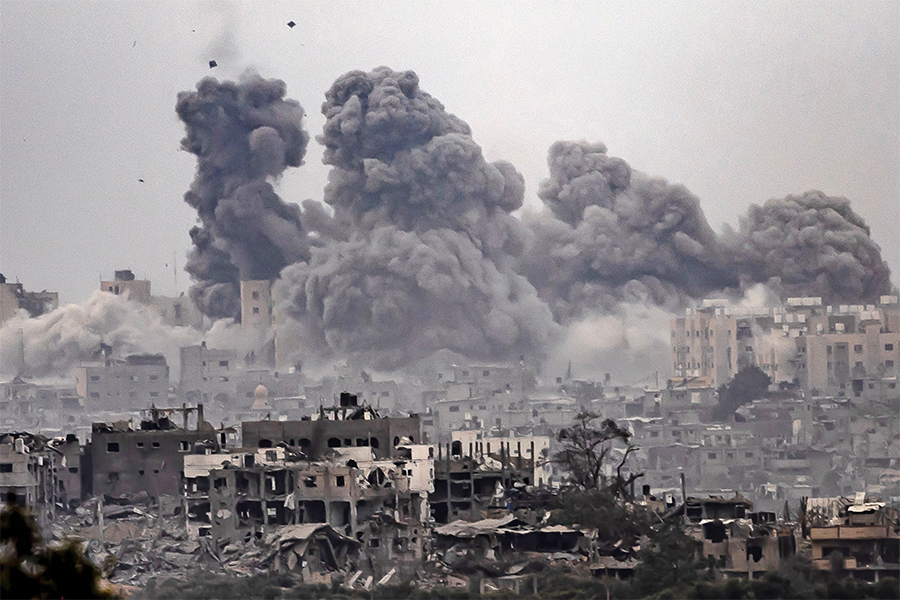









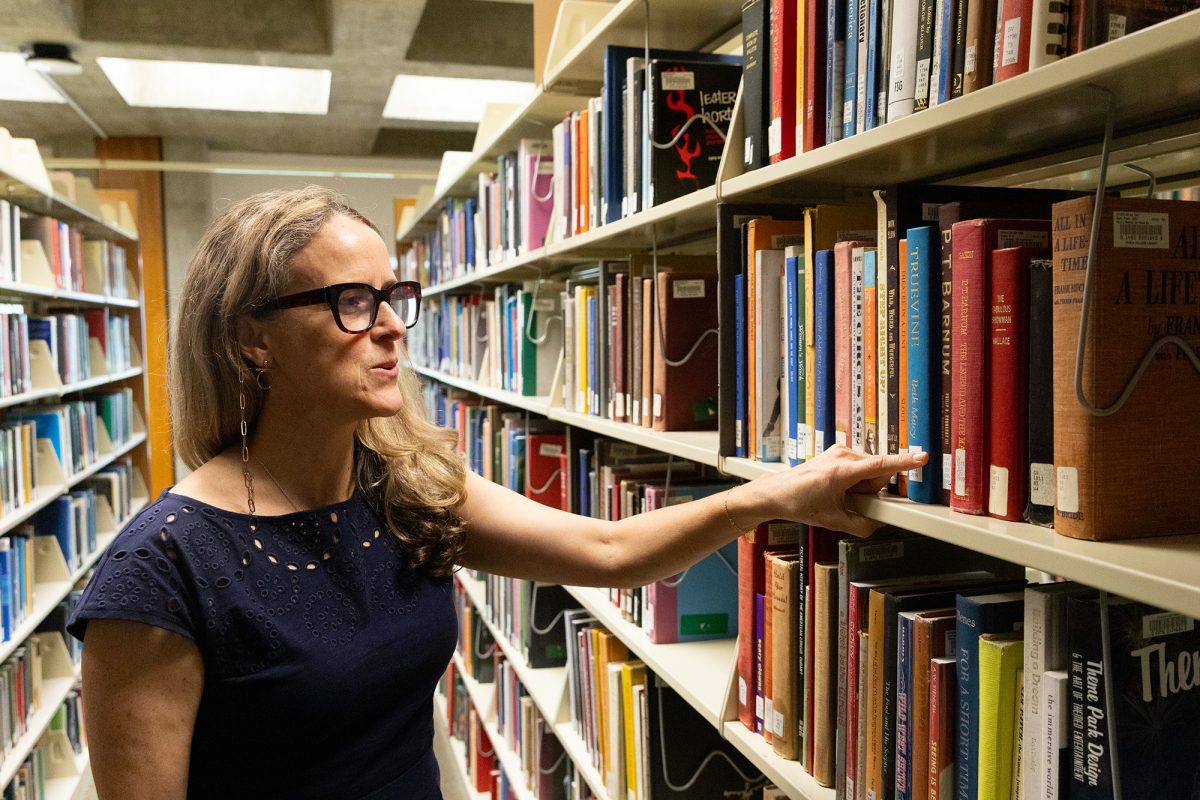
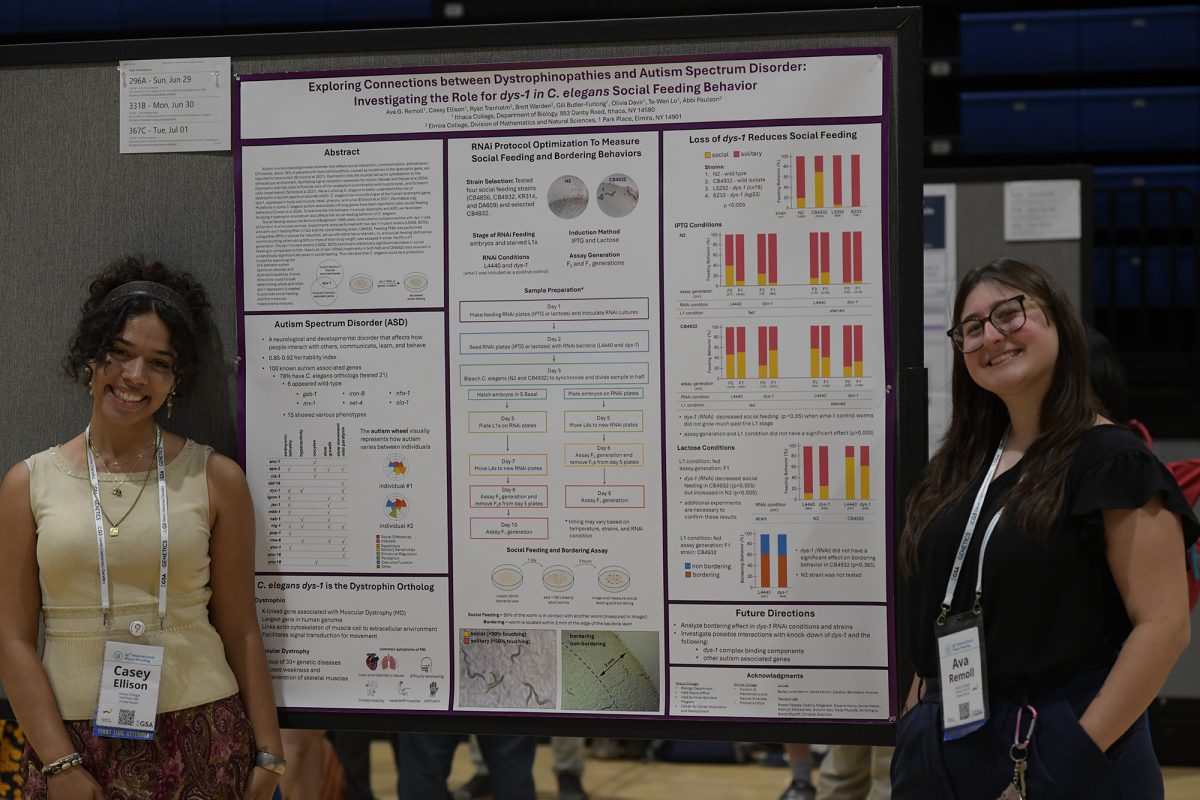
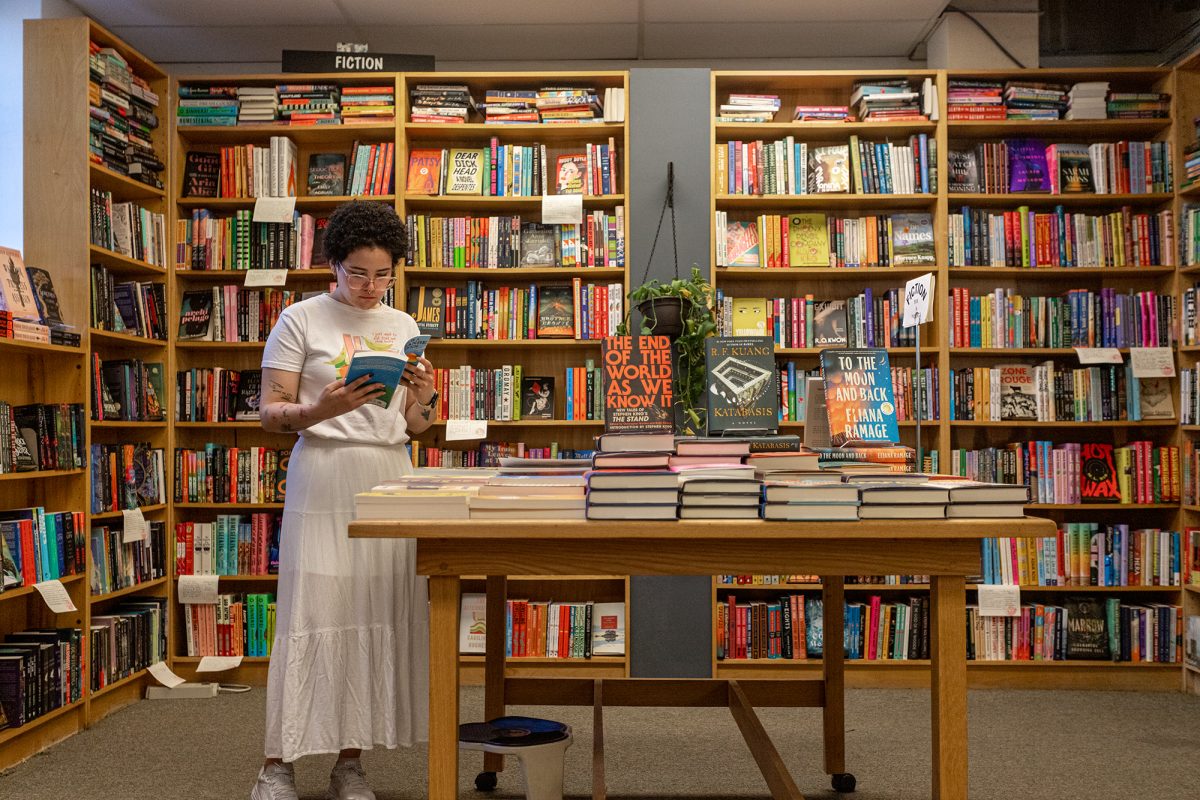
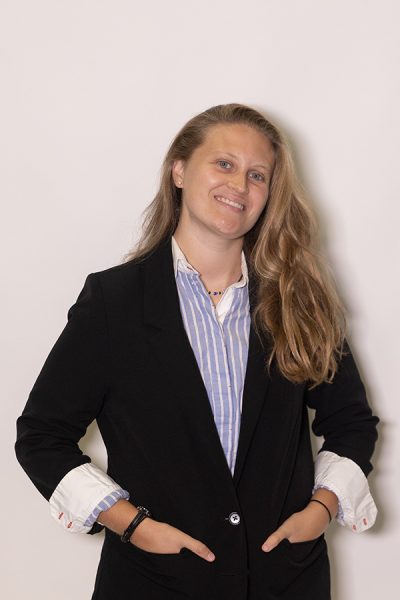

Carlos Figueroa • Nov 2, 2023 at 9:33 am
More has to be done about letting all peaceful voices be heard without judgment or ridicule. Aggressive strategies and tactics dressed up as defense policy are not the answer. Quaker Douglas Steere once wrote, “Holy listening—to ‘listen’ another’s being into life, maybe almost the greatest service that any human being ever performs for another.” Let us heed this message at all levels.
Tal Aizen • Nov 18, 2023 at 11:38 am
For “aggressive strategics and tactics dressed up as defense policy…” I hope you’re speaking of this bilaterally about both the IDF and HAMAS…
Li ho • Nov 1, 2023 at 8:42 pm
I would like to hear what they have to say and discuss. We were the youth of yesteryear, now we must give opportunities to listen to them. Their fears and concerns are many. How they (we) process this is critical to any peace in the future globally. It will require the assisted healing of nations and efforts for peace for years ahead. I want also for the war to stop, get humanitarian aide into gaza and save a people. Time is past due. People will come to help near and far I pray.